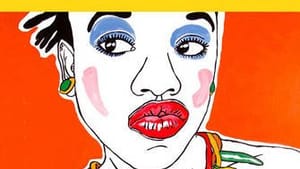Stay in the Loop
BSR publishes on a weekly schedule, with an email newsletter every Wednesday and Thursday morning. There’s no paywall, and subscribing is always free.
On a hot Tuesday in July, Asali Solomon and Naomi Jackson sat side by side at Main Point Books in Bryn Mawr, each reading from her recent novel. Solomon read from Disgruntled, about a young woman in West Philadelphia being raised by parents with a strong, but sometimes confusing, sense of moral and social obligation. Jackson’s book, The Star Side of Bird Hill, primarily set in Barbados, is about two young girls from the United States staying with their grandmother.
While each book examines a specific cultural and racial tradition, and each writer has a unique style, there are as many similarities as differences between the books.
Both novels are set in the 1980s, and both have strong female protagonists with a dense web of relationships. Most importantly, both are cross-cultural coming-of-age stories that address not just the feminine coming-of-age, but the complex dynamics within cultures that have often been portrayed simplistically, if at all. Both books have universal themes, such as struggles with religion and social relationships.
In  the case of Disgruntled, the author provides realistic, and I imagine difficult to write, conversations between a mother and daughter, each traversing her own edges. Solomon offers insight into the simultaneous possibility and turmoil faced by Kenya, whose determined, intellectual parents educate their daughter about race dynamics. Kenya’s keen awareness is frequently interrupted by a feeling of distance from her peers. Her perspective is sarcastic and hopeful, questioning and committed, and helps bring better understanding of how young people deal with their everyday struggles.
the case of Disgruntled, the author provides realistic, and I imagine difficult to write, conversations between a mother and daughter, each traversing her own edges. Solomon offers insight into the simultaneous possibility and turmoil faced by Kenya, whose determined, intellectual parents educate their daughter about race dynamics. Kenya’s keen awareness is frequently interrupted by a feeling of distance from her peers. Her perspective is sarcastic and hopeful, questioning and committed, and helps bring better understanding of how young people deal with their everyday struggles.
In The Star Side of Bird Hill, Jackson crafts portions of her own memories into the experiences of Dionne and Phaedra, two teenaged sisters sent to live with their grandmother in Barbados. The novel has brightness to it, but the book also addresses deeply difficult situations. Religion is a prevalent theme for Jackson; in response to a question at the reading, she said she came from a place where she lost her faith as a young woman. Her intention is to “probe questions” about religion — not to mock or vilify, but to foster greater understanding.
Each of the books addresses raw racial experiences while keeping within common adolescent themes, such as what it means to be authentic to oneself and identify with one’s culture. Each fills a void in literature of young women of diverse and complex racial and cultural backgrounds. The authors allow us access to intimate parts of their own experiences and their own views of authenticity, and their own questions as to what it means to be authentic to self, and whether that ever really happens, in any culture.
Sign up for our newsletter
All of the week's new articles, all in one place. Sign up for the free weekly BSR newsletters, and don't miss a conversation.

 Aja Beech
Aja Beech
